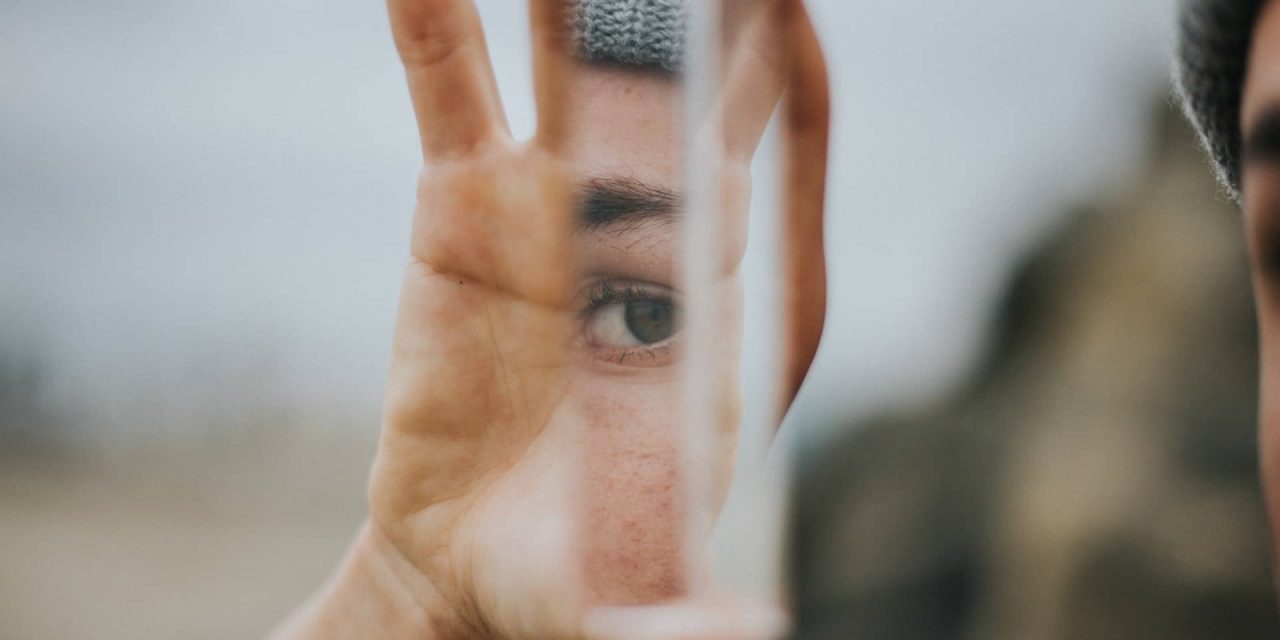Highly sensitive person and autism. On the surface they look very similar, but there are differences! In this blog I will happily explain what these differences are.
Estimated reading time: 12 minutes
For at least ten years I thought I was a highly sensitive person, and that’s actually not all that strange, because the media portrays a very narrow image of autism. If you look at some of the more known characters, like Rain Man and Sheldon from the Big Bang Theory, you’d say only white cis males are autistic. Characters like these are often seen as geniuses and non-speakers.
Autism in real life is completely different from what you usually see. Hence, that’s why a lot of the traits are unknown to people. Moreover, that’s why a lot of people with autism don’t know what exactly it entails and identify as a highly sensitive person. On the other hand, masculine people may think they are autistic, while in fact they are highly sensitive. In this blog I’d like to give some clarification!
Here’s What You’ll Learn About The Differences Between Being A Highly Sensitive Person and Autism:
- What Is Autism?
- Are You Secretly Navigating the Challenges of Autism aka Maskin?
- Why I Think That Highly Sensitive People Are Neurodivergent
- The Similarities Between The Highly Sensitive Person Trait And Autism
- What Are The Differences Between The Highly Sensitive Person Trait And Autism?
- Am I Autistic?
- We Need Sensitive Souls In This World
- Additional Literature on Autism and the Highly Sensitive Person
What Is Autism?
Autism is a neuro-type that is not easy to describe. While the exact cause isn’t known, we do know that it is a congenital neurobiological development disorder. In short, this means that the information processing in the brain is different than that of other people.
Most people see the world in conjunction, just like one film is a coherent whole of images. Autistics usually see the world as separate photos. Hence, they see less coherence. Consequently, this makes it very difficult for them to understand what is happening around them.
The diagnosis ‘autistic disorder’ – also known as ‘classic autism’ or ‘Kanner’s syndrome’ – is no longer given. The current edition of the Diagnostic and Statistical Manual of Mental Disorders, the DSM-5, only speaks of one term: Autism Spectrum Disorder (ASD). The scientific basis for the earlier autism subtypes were insufficient. People who have had this diagnosis in the past can continue to use them, though.
Not every autistic has the same characteristics and traits. And not only are they different per person, they can also be different from time to time in one person. Moreover, they depend on someone’s mood and the situation they are in. There are, however, symptoms that occur in a large proportion of people with autism. For example, these characteristics and traits can be divided into social and communication limitations, fixed rituals, and difficulty with change.
Are You Secretly Navigating the Challenges of Autism aka Maskin?
Some people may not be aware yet that they are autistic and are highly skilled at masking. “Unmasking Autism” by Dr. Devon Price is like lifting the veil on a hidden world and talks about this topic.
Ever met someone who seems ‘just like everyone else’ but is secretly navigating the challenges of Autism? This book dives deep into that. Dr. Price combines personal stories with a touch of history and research to give us a peek into the lives of those who ‘mask’ their Autism to fit in.
It’s about the personal battles they fight, especially when things like race or gender come into play. But, this isn’t just a book about struggles. It’s packed with hands-on tips for embracing our unique selves and celebrating what makes us different.
Whether you’re Autistic or not, this book invites everyone to step into a world of understanding and acceptance. A must-read for anyone who believes in celebrating individuality!
Why I Think That Highly Sensitive People Are Neurodivergent
Highly sensitive people and autistic people have some things in common. During my research I found out that a lot of people categorize being a highly sensitive person as a character trait. I personally disagree with that. In my opinion both autism and high sensitivity fall under the neurodiversity term.
Neurodiversity really just means that there are differences between brains. Moreover, there are brains that process information in different ways and use different ways of thinking and learning. For example, the autistic brain is one of them, but ADHD, dyslexia, dyscalculia and Gilles de la Tourette also fall under the neurodiversity umbrella. Therefore, I also consider being a highly sensitive person to also fall under this term, as the brains of HSPs also process information and stimuli in a different way than the “normal” neurotypical brain would.

The Similarities Between The Highly Sensitive Person Trait And Autism
Because autism and high sensitivity both are neurodivergent, they show similarities. These are the similarities between a highly sensitive person and autism:
Extremely Sensitive To External And Internal Stimuli
Both parties know all too well what it is like to experience sensory input from their environment, like (loud) noises or a clothing label that stings in your neck. Moreover, both highly sensitive people and autistics can get overstimulated from their thoughts, feelings and emotions.
Overwhelm
Another similarity is the overwhelming feeling they both get from those stimuli. Both parties can become incredibly overwhelmed by all this input. Hence, this can result in extreme fatigue, shutdowns or panic attacks (if the person hasn’t developed coping mechanisms).
Empathy And Intuition
This is something that a lot of people don’t know because of misinformation in the media. Another trait highly sensitive people and autistic people can have in common is the extreme level of empathy. Autistic people are known for lacking empathy. However, it’s way more common for them to experience too much empathy, just like highly sensitive people do. They also can be very intuitive!
What Are The Differences Between The Highly Sensitive Person Trait And Autism?
Now that we’ve discussed the similarities, let’s have a look at the differences. There are certain traits that people with autism do have, which highly sensitive people don’t. In order to demonstrate these traits, I applied the DSM-5. To meet the diagnostic criteria for ASD according to the DSM-5, a person must have persistent deficits in each of the criterial areas:
- Social communication and interaction (in each of the three areas)
- Restricted, repetitive behaviors (at least two of four types)
Social Communication And Interaction
In autism, there are deficits in social-emotional reciprocity. This might include an abnormal social approach and/or a failure or normal back-and-forth conversation. Also, there may be deficits in sharing of interests, emotions or failure to initiate or respond to social interactions.
Additionally, there are deficits in nonverbal communication used for social interaction. This may include poorly integrated verbal and nonverbal communication, abnormalities in eye contact and body language. In addition, it may involve troubles with understanding and using gestures and facial expressions.
Another issue in area of social communication and interaction is developing, maintaining and understanding relationships. This might include having difficulties in adjusting behavior in different social settings, to the absence of interest in peers.
What I have noticed is that most highly sensitive people don’t have as many issues in this field as autistic people do. A highly sensitive person may experience less trouble with connecting to people. Overall, they are social beings and do not experience these problems. In my research I have found that highly sensitive people often find social interaction very rewarding. They thrive on forming strong bonds with people, something that autistic people often find more challenging.
Restricted, Repetitive Behaviors
Another thing that characterizes autism, are the restricted and repetitive behaviors, interests or activities. These are some examples:
- There are stereotyped or repetitive motor movements (like flapping hands, spinning around), use of objects (lining up toys or flipping objects) or speech (echolalia or idiosyncratic phrases).
- Insistence of sameness. This means autistic people are inflexible in their routines, they have ritualized patterns of verbal or nonverbal behavior (extreme distress at small changes), trouble with transitions, rigid thinking patterns, greeting rituals or samefooding.
- Fixated interests that are abnormal in intensity or focus.
- Hyper – or hyporeactivity to sensory input or an unusual interest in sensory aspect of their environment. This might look like excessive smelling or touching or things, or an occupation with lights or movement. Some autistic people might not notice pain.
As you can see, this demonstrates the differences between the highly sensitive person trait and autism. Most highly sensitive people are not as rigid as autistic people are. They are often way more flexible and are struggling less with major changes compared to people with autism. If you do recognize any of the other behaviors listed above, it might be that you are not a highly sensitive, but autistic.
Am I Autistic?
It could be the case that, after reading this blog, you recognize yourself in the autistic traits. It could be that you thought you were a highly sensitive person and that could still be the case! However, if you experience challenges in daily life with overstimulation, problems in social interactions and have troubles with communicating, you may want to look into autism. As I said earlier, a lot of people are overlooked because they don’t fit the one-sighted view of autism.
It might be the case that you are feeling scared or worried after reading this. I want to let you know that you don’t have to be scared. I know that the society we currently live in often sees autism as a negative thing. Being a highly sensitive person is also oftentimes looked at as something negative, because we live in a society that doesn’t value us sensitive people. Neurotypicals oftentimes see sensitivity as something to be ashamed of, as a weakness. But I want you to know that that’s not the truth.
If you think that you might be autistic, you might want to check out the Amazon bestselling book ‘I Think I Might Be Autistic: A Guide to Autism Spectrum Disorder Diagnosis and Self-Discovery for Adults’.
And if you think that you’re a highly sensitive person, but you’re not sure, you should definitely check out the book ‘The Highly Sensitive: How to Find Inner Peace, Develop Your Gifts, and Thrive’.
We Need Sensitive Souls In This World
Please know that if you have the highly sensitive person – or autism trait, you have many strengths to bring to the table. You are probably very loyal and honest. Moreover, you are empathetic and intuitive. Also, you are creative and you are good at thinking outside the box. You view the world in such a beautiful way. Additionally, you have such specific knowledge and expertise. Finally, you’re an observer and have a good eye for detail. Embrace it. Cherish it. It makes you who you are and you’re allowed to be proud of that.
Shed the expectations of the world. The world is busy, crowded, hectic and the pressure is always on. If you’re autistic or a highly sensitive person, please know that it’s okay to follow your own pace. Your own path. It’s okay. It’s why you are here. I promise.
Additional Literature on Autism and the Highly Sensitive Person
If you’d like to discover the topic autism more, here are some books I recommend you to read:
Neuro tribes: The Legacy of Autism and the Future of Neurodiversity – Steve Silberman
“NeuroTribes” by Steve Silberman is an enlightening read that delves into the complex history of autism, offering a comprehensive narrative from its earliest research to the modern understanding of neurodiversity. This groundbreaking book challenges conventional views, presenting autism not just as a disability but as a natural and valuable variation of the human genome. Silberman’s compelling exploration into the evolution of autism diagnoses and the concept of neurodiversity is a vital contribution that reshapes our understanding of cognitive differences in society.
The Reason I Jump: The Inner Voice of a Thirteen-Year-Old Boy with Autism – Naoki Higashida
“The Reason I Jump” by Naoki Higashida offers a profound, intimate glimpse into the autistic mind. Written by a thirteen-year-old boy with autism, this unique memoir reveals how he perceives and interacts with the world in ways that are both enlightening and inspiring. Through his honest and heartfelt narrative, constructed using an alphabet grid, Naoki answers questions about autism with deep insight, changing the way readers view not just autism, but life itself. This book is a transformative read, providing a rare and valuable perspective on the experiences of those with autism.
Loud hands: Autistic People, Speaking – Julia Bascom
“Loud Hands: Autistic People, Speaking” is a compelling anthology of essays by Autistic individuals, offering a rich tapestry of the lived experiences and perspectives within the Autistic community. This collection, ranging from the early days of the Neurodiversity movement to contemporary blog posts, serves as both a historical document and a deeply personal account of Autism. It provides invaluable insights, preserving and showcasing the diversity and core principles of the Autistic community in their own words.
But you don’t look autistic at all – Bianca Toeps
In her insightful book, Bianca Toeps offers a candid and often humorous exploration of life with autism, moving beyond stereotypes to the reality of daily experiences. She combines scientific perspectives with personal narratives and interviews, providing a well-rounded view of autism. Toeps’ engaging style addresses common misconceptions and offers practical advice, particularly for non-autistic people, on how to interact respectfully and effectively with autistic individuals. This book is an eye-opening read, challenging preconceived notions and deepening the understanding of autism.
Divergent mind: Thriving in a World That Wasn’t Designed for You – Jenara Nerenberg
“Divergent Mind” by Jenara Nerenberg is a groundbreaking exploration of neurodivergent women, delving into why traits like ADHD, autism, and high sensitivity are often overlooked in women. Nerenberg, a journalist with personal experience, uncovers the rich diversity of mental makeups, highlighting the systemic flaws in diagnosis and societal attitudes. This insightful book offers a new perspective on neurodiversity, celebrates the unique strengths of neurodivergent minds, and provides practical guidance for a more inclusive society that values and supports these differences.
The Highly Sensitive: How to Find Inner Peace, Develop Your Gifts, and Thrive – Judy Dyer
This insightful guide for Highly Sensitive People (HSP) offers practical strategies to navigate a world that often feels overwhelming. It delves into understanding the nuances of being an HSP, managing emotional overload, and turning high sensitivity into a strength rather than a setback. The book is a valuable resource for HSPs seeking to establish healthy boundaries, protect themselves from negative energy, and embrace their unique qualities to lead a fulfilling life. It empowers HSPs to recognize their potential and harness their sensitivity as a gift.
You May Also Enjoy Reading These Articles
Hey there, lovely readers! We want to be completely transparent with you. Some of the links in this blog are affiliate links, which means if you click on them and make a purchase, we may earn a small commission at no additional cost to you. 😊
We only recommend products and services we genuinely believe in and have personally used or researched. Your support through these links helps us keep bringing you valuable content, so thank you for being amazing!








Hi Nikki,
I could really use your help and any wisdom you have to share with me. I apologize for how long this will be. I’m finishing up writing a memoir about my life, and in the [very difficult but also very therapeutic] process of writing, I began to suspect that I am on the spectrum. I found two checklists geared toward women and their experience/presentation of autism, and strongly agreed or agreed with 75% and 72% of the points on the lists. One had 281 points and the other had 179. I felt a sense of relief, as I looked over my life through the lens of HFA.
However, a few days ago someone I was talking with about this suggested HSP to me instead, and while much of it rings true of my entire life, I am confused on the social aspect. I am very communicative, an oversharer, talk “too much”, and am very passionate about my favorite subjects, sometimes talking about them to a point that bores others (I think?). But, since I was a child I’ve struggled with social interaction. It’s not refreshing in and of itself, and I almost always feel “weird” and like I have the unpopular opinion or am too strong in my presentation of topics. And, while I desire to relate to others, I often find the subject coming back around to me and the world inside of my head and heart. As a child, I was considered painfully shy by my mom, and as a teen I began to use drugs to “loosen up” so I could come out of my shell and be social without severe social anxiety.
I usually have to force myself to make eye contact, and often think while doing so, “where should I be looking? Can she/he tell I’m struggling with where to look?” I will often blink a lot as if something is in my eyes or rub my eyes to be able to have an excuse to look away. In addition, when conversations end, I tend to obsess over what I said or didn’t say, what I did wrong, how people might’ve taken what I said, what they meant when they said such-and-such, and so on and so forth. It is emotionally taxing and leaves me feeling like an outcast, even amongst people who are friends and who seem to genuinely accept me despite my quirks. My heart races with anxiety and my IBS flares up when I speak to more than one person at a time (and sometimes even just one) and yet I’ve been told many, many times I am an excellent speaker and teacher, and that it’s not obvious that I’m nervous.
What I’m confused about is whether my experience of social interactions would qualify as a “deficit” pointing more to ASD than HSP, because of the emotional turmoil it causes. I can indeed be very social (which for me means I love deep one on one conversations and fail miserably at small talk, diving deep instantly at times), but social situations take a lot out of me and I have to prepare myself for them with self-talk, “just don’t say too much and you’ll be fine; don’t talk about yourself too much; try to look at people’s faces to see whether you’re talking too much,” etc. The social aspect of HSP vs ASD seems to be the most perplexing to me.
Also worth noting is that I was diagnosed BP1 as a teen, amongst other things like anxiety disorder. As a child I had a number of tics (still do today), vocal and otherwise (unnoticed except by my father who would end up irate over my throat clearing and sniffling), was panicked by certain sounds and feelings of certain materials like carpet, gagged at the sound of brushing teeth, and other sensory things. More recently (in the last 5 years) I’ve been diagnosed with cPTSD, MDD, PMDD, and GAD. I would greatly appreciate any thoughts you have to help clarify things for me. Thank you for your time!
i don’t know you, and we will never meet. But I ‘remember’ your personal experiences, even things I had completely forgotten about. Thank you for writing this down.
Hi Alex, it’s been a year and Nikki hasn’t answered publicly. I am puzzled by this “social” question as well. But I think, reading what you described, I was able to realized, that it will in all likilyhood be ASD. Please don’t forget that it is also perfectly possible for you to be both, but if I had to pick one, I’d pick and concentrate on ASD.
Hi Nikki, thank you so much for this article!!! It has helped more than you may ever realize! I have seen/considered myself an HSP for the past several years, however the more research that I’ve done lately it seems like to me I could possibly fit in the autism category. My question is especially when it comes to social situations and engagements, I love people and a lot of times I thrive with people. As a child though, I was considered shy and reserved and did not seem to fit in/have many friends. I have been diagnosed with PTSD and Avoidance disorder (AVPD) but again the more I research and learn the more I wonder if these too may fit into autism. Since being out of school and changes in my life, I have seemed to become more of an extravert, and again, when I feel safe,love being with people ~a.lot of times this seems to bring me to life-. When I don’t feel safe though, when the AVPD comes up, it’s like I completely shut down and can’t get away soon enough. For many years I have absolutely hated social situations including prom, wedding receptions, church parties, etc. So I feel like I’m at two completely opposite ends of the scale on this.
I appreciate any thoughts you might have and again, thank you for your article.
Hi Marcy! I very much relate to you on this! You aren’t alone! I’ve heard from others who also relate. I’m not formally diagnosed with autism but highly likely. Had a couple people such as a counsellor mention HSP and family mentioned (at the time Asperger’s). I’ve been encouraged to get a proper evaluation to see (as I’m taking university courses and may need accommodations/struggle with).
I think the idea of being stressed in groups is the overstimulation, so much to take into consideration. We probably have been conditioned to overthink our relationship to people based on reactions. Have you heard of ‘masking’? Starting to learn about it but basically there’s these social norms we’re around that aren’t natural to us, so it’s as if we have to act, with can be anxiety inducing and exhausting..hence rather avoided. But when in a safe environment where you feel can be yourself! There’s not that pressure…Now, I’m not an expert on this and I’m not saying you are one or the other, but I have heard that in autism it can be one extreme or the other. Example some over stare (I knew someone who used to do that, which was very uncomfortable) and yes, there can be over sharing. I relate to you on that. I’d suggest reading into it more, by looking up specifics such as masking with autism and social interactions. I hope that helps! Feel free to ask clarification or share any comments/feedback 🙂